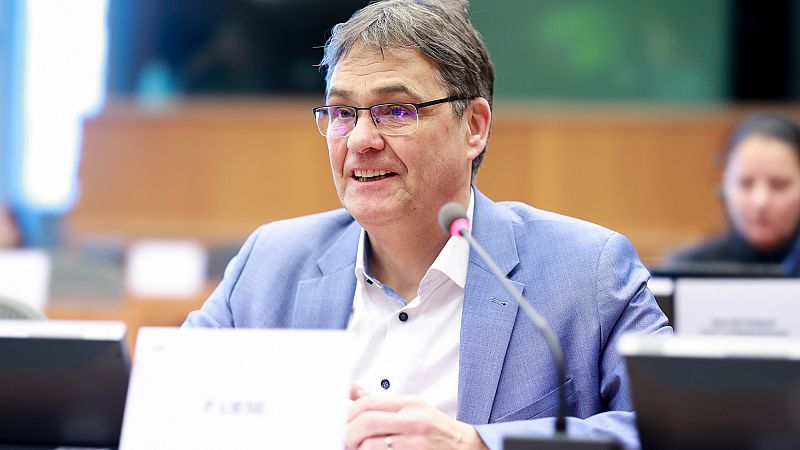Conservative EPP confident of success in EU deregulation push

German lawmaker Peter Liese has dismissed a last minute plea from the Socialists & Democrats (S&D) group, calling on European Commission President Ursula von der Leyen to reconsider plans to reopen legislation requiring firms to ensure there is no environmental damage or abuse of human rights along their supply chains.
Social democrat MEPs “categorically oppose” the inclusion of the Corporate Sustainability Due Diligence Directive (CSDDD) in the legislative package expected on 26 February, S&D group leader Iratxe García wrote.
The hard-fought legislation has not even been implemented yet, and “does not contain reporting requirements,” Garcia wrote in the letter dated 20 February, which also calls for guidance rather than a gutting of the related CSDD.
Although signals from within the Commission suggest the package is still a work in progress and the subject of urgent meetings behind closed doors, the S&D was particularly concerned about the potential scrapping of key enforcement and judicial redress provisions.
“Not only would these changes amount to stripping the directive of its power and rendering it ineffective, the changes would risk worsening…actual human rights and environmental abuses and significantly restricting the rights of victims,” Garcia wrote.
A price worth paying
But Liese, whose group is also von der Leyen’s political home and was instrumental in pushing a raft of Green Deal legislation back onto the political agenda, was bullish about the prospects of the Commission backing the EPP’s line.
"I trust in the common sense of the Commission that this letter will not be successful, that we will have the omnibus covering all four legislations and that it will be a courageous proposal,” Liese said while briefing reports in Brussels.
There are two other laws that the veteran Christian Democrat lawmakers referred to. One is the carbon border adjustment mechanism (CBAM), an import duty based on the estimated carbon footprint of certain goods like steel and cement. The other is Taxonomy Regulation, which is a list of industrial sectors deemed to be sustainable, and thus potential beneficiaries of EU support or investment through green bonds.
All but the very largest of corporations should be exempted from CBAM reporting requirements, Liese said, arguing that Commission data shows 99% of emissions would be covered even with 91% of companies – including a new category of mid-cap firms - outside the scope of the law.
A 1% decrease in the beneficial climate impact of the law was an “acceptable” price to pay to shield European small businesses from the costly administrative burden, Liese asserted.
Campaigning for Merz in Germany, sticking to net zero
Despite the drive to free businesses of environmental obligations, Liese was adamant the EPP remained committed to EU climate goals, including a 55% emissions cut by 2030 compared to 1990, and net zero by the middle of the century.
Speaking before heading to Germany to campaign for his party and its leader Friedrich Merz in the last two days before the general election, Liese said Germany’s likely next chancellor – if the polls are correct – shared his commitment to climate action.
“I campaigned for him in his first campaign for the European Parliament in 1989, and really, you can trust that he will not work with the [far-right party] AfD,” Liese said.
“And you can trust that he will not give up the climate targets. In every speech, he says we need to stay on course because climate neutrality is a must.”
But the EPP will likely need support from groups further to the right in the European Parliament to get any proposed amendments to environmental law onto the statute books, although Liese said he believes many rank-and-file members of the S&D share his group’s concerns over red tape.

